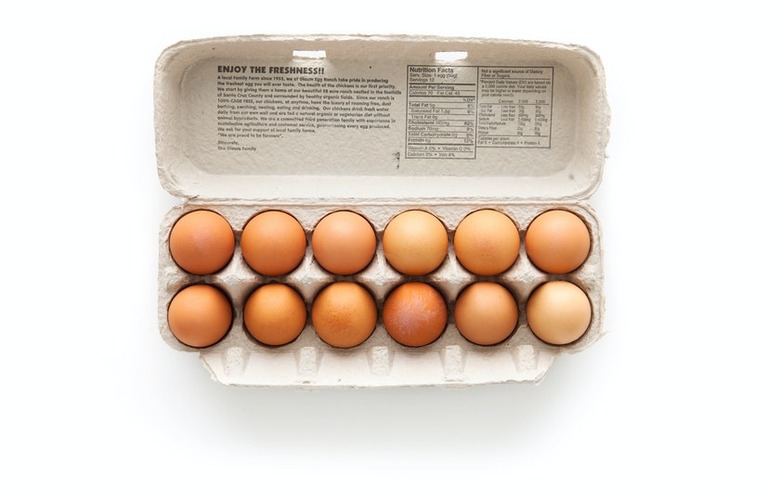Have You Been Storing Your Eggs All Wrong?
When we found out that we've been storing our butter all wrong, we were sent down a food storage rabbit hole. We couldn't stop thinking, "What other foods have we been storing wrong?" That's exactly when we remembered that Europeans are known for keeping their eggs at room temperature. So, have we also been storing our eggs improperly (i.e., in the refrigerator)?
To get to the bottom of how our eggs should be stored in the United States, we reached out to food safety experts and dietitians.
"Commercially produced eggs in the U.S. are of a different standard than that of European eggs," April Rivas, a certified food safety instructor and the owner of ATC Food Safety, tells Hunker. "Part of our USDA (United States Department of Agriculture) requirement is that eggs are washed. This process removes the 'bloom' or protective coating on an egg. So for safety reasons, in the U.S., we refrigerate commercially purchased eggs."
Isabel Maples, a nutritionist and registered dietitian with the Academy of Nutrition and Dietetics, adds that in the United States, eggs are washed after being gathered to help eliminate any disease-causing, potentially deadly salmonella bacteria. Since the washing also removes the egg's protective barrier, that means the egg is more susceptible to bacteria when it's left out of the refrigerator.
"A cold egg can also 'sweat' at room temperature, which can encourage bacterial growth and for this reason, consumers should maintain refrigeration temperature of eggs once purchased and brought home," Amy C. Keating, a registered dietitian, nutritionist, and the program leader at Consumer Reports, tells Hunker. "To minimize your risk of foodborne illness from salmonella, be sure to cook your eggs thoroughly before eating."
You might now be asking yourself, "But what should I do when baking requires room temperature eggs?" In that case, Maples advises that you only leave the eggs at room temperature for a maximum of two hours before using them for baking.
Lastly, Maples states that you should keep your eggs in their original carton, avoid washing them at home (which can further spread salmonella), and ensure that they are refrigerated below 40 degrees Fahrenheit.
